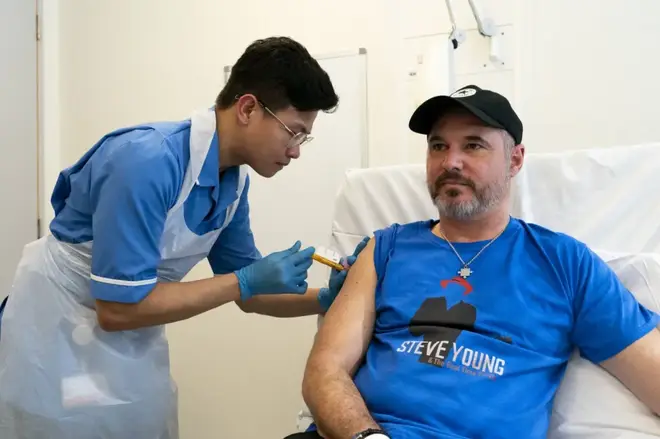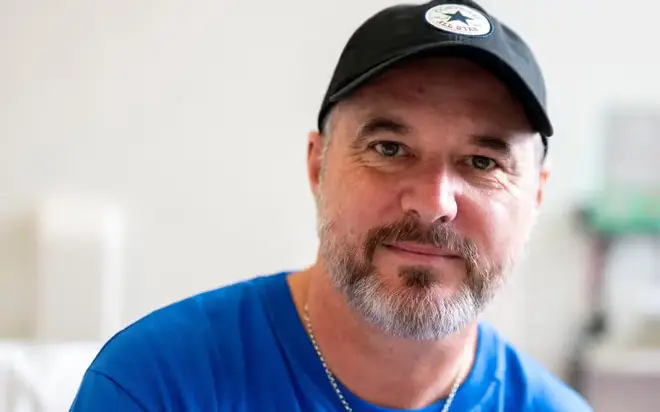
Shelagh Fogarty 1pm - 4pm
26 April 2024, 05:28 | Updated: 26 April 2024, 09:11

A 'game-changer' mRNA skin cancer jab is being tested on patients in the UK.
The jab is personalised for each patient, and could also help prevent ladder, lung and kidney cancer, if successful.
It works by telling the body to hunt down cancer cells and preventing the cancer from coming back.
A stage 2 trial involving pharmaceutical companies Moderna and MSD found it cut down the risk of the cancer returning in melanoma patients significantly.

LBC's Guy Stewart explains the skin cancer jab
University College London Hospitals NHS Foundation Trust (UCLH) is leading the phase 3 trial.

Dr Heather Shaw, co-ordinating investigator of the trial, said the jab was "one of the most exciting things we've seen in a really long time" and a "really finely honed tool".
She added: "To be able to sit there and say to your patients that you're offering them something that's effectively like the Fat Duck at Bray versus McDonald's - it's that level of cordon bleu that's coming to them.
"These things are hugely technical and finely generated for the patient. The patients are really excited about them."

Nick Ferrari reflects on how his own father died from cancer over 40 years ago
One of the patients on the UCLH trial is Steve Young, 52, from Stevenage. A "bump" on his head turned out to be melanoma.
Mr Young said hearing about the trial "really triggered my geek radar".
He added: "It really piqued my interest. As soon as they mentioned this mRNA technology that was being used to potentially fight cancer, I was just like, 'it sounds fascinating' and I still feel the same. I'm really, really excited.
"This is my best chance at stopping the cancer in its tracks."

Carol Vorderman brought to tears by caller's cancer story
Known as mRNA-4157 (V940), the jab is created to target tumour neoantigens, which are expressed by tumours in a particular patient.
These are markers on the tumour which can potentially be recognised by the immune system.
The jab carries coding for up to 34 neoantigens and activates an anti-tumour immune response based on the unique mutations in a patient's cancer.
To create the jab, a sample of tumour is removed during the patient's surgery, followed by DNA sequencing and the use of artificial intelligence.
Dr Shaw said: "This is very much an individualised therapy and it's far cleverer in some senses than a vaccine.
"It is absolutely custom built for the patient - you couldn't give this to the next patient in the line because you wouldn't expect it to work.
"They may have some shared new antigens, but they're likely to have their own very individual new antigens that are important to their tumour and so, therefore, it is truly personalised."
The ultimate aim is to cure patients of their cancer, Dr Shaw said.
"Absolutely, that's the drive. With (this) therapy, what you're doing is dealing with the theoretical risk that the cancer could recur.
"So there's nothing to see on scans, but if there are some cells that have escaped that are below the detection of imaging... what we're trying to do is, on a patient-by-patient basis, give treatment to eradicate any of those rogue cells that might be sitting about.
"What we're trying to do is to push more patients into that recurrence-free survival bucket, which should translate into overall survival benefit and a non-recurrence of those patients over time, which equals cure."